James Wishart, lecturer in composition at the University of Liverpool, has died of a stroke at 61.
A reticent, private man, he was content for his music to be appreciated locally.

James Wishart, lecturer in composition at the University of Liverpool, has died of a stroke at 61.
A reticent, private man, he was content for his music to be appreciated locally.

A Moscow judge has extended the house arrest of Kirill Serebrennikov by three months to mid-July, ensuring that the controversial director cannot attend the Cannes Film Festival where he has a significant entry for the Palme d’Or.
Serebrennikov, director of Moscow’s Gogol Theater and an innovative opera producer, was arrested last August on charges of embezzlement. An outspoken critic of the Putin regime, his punishment is presumed to be political.

Walter Vergnano quit the Teatro Regio di Torino last night after 19 years as sovrintendente. His departure triggered the instant resignations of Gianandrea Noseda, the music director and Gastón Fournier-Facio, the artistic director, leaving the theatre headless.
The reasons are political. The mayor of Turin aims to replace Vergnano with the veteran director Giancarlo Del Monaco, who is a close friend of the Five-Star party leader Beppe Grillo (pictured).

We have regaled you for several years with the comic maladministration of the Orchestre de la Suisse Romande, a Geneva ensemble that achieved world fame under Ernst Ansermet and subsequently subsided into provincialism.
Latest reports from Geneva suggest that the company may be undergoing a slow recovery in the hands of the partner of a talented young conductor. One sign of its revival is a spot at the BBC Proms in the orchestra’s centenary year.
Other visiting orchestras include the Berlin Philharmonic with Kirill Petrenko – whom Proms bosses turned down just three years ago – Rotterdam with Yannick, Musica Aeterna with Currentzis, Minnesota with Vanska, Paavo Järvi’s Estonian Festival Orchestra, along with Boston, Baltimore, Bergen and Budapest.
Full programme now online.
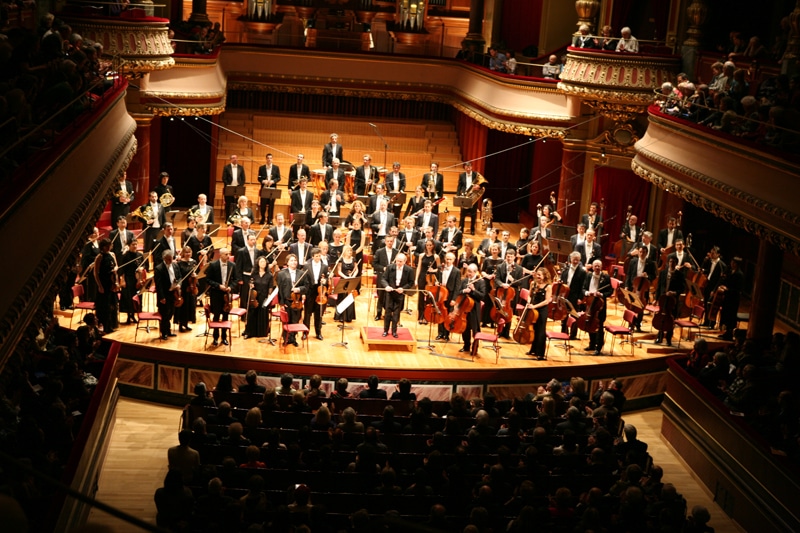
‘Holistic and personalised support?’ Could be too little, too late.
Here’s the press release:

NEW YORK (April 18, 2018) — Three national organizations – The Sphinx Organization, New World Symphony, and the League of American Orchestras – have partnered to create the National Alliance for Audition Support (NAAS), a field-wide initiative with the long-term goal of increasing diversity in American orchestras.
Supported by a four-year, $1.8 million grant from The Andrew W. Mellon Foundation, along with additional financial and programmatic contributions from America’s orchestras, the Alliance will offer a holistic and personalized array of support to Black and Latinx musicians to develop their audition skills, increase their participation in auditions, and ultimately, increase their representation in orchestras.
“This is a critical time for all of us to act with renewed commitment and drive to help our orchestras to be more reflective of their communities and to represent perspectives and talents from Black and Latinx musicians,” said Sphinx President and Artistic Director Afa S. Dworkin. “We are honored to join forces with key industry leaders, humbled to receive and incorporate extensive insight directly from artists, and incredibly grateful to The Andrew W. Mellon Foundation for prioritizing this vital work.”
“New World Symphony envisions a strong and secure future for classical music,” said NWS President Howard Herring. “We believe that is possible only if the orchestras of this country are representative of their communities. New World is committed to diversifying its Fellowship with the support of our alumni, who have won positions in orchestras and ensembles around the world. We are honored now to partner with Sphinx and the League in forming this new Alliance dedicated to making equity and inclusion part of the future for American orchestras.”
“This unprecedented collective action on the part of America’s orchestras addresses some of the main barriers to advancing diversity, equity, and inclusion in orchestras,” said Jesse Rosen, President and CEO, League of American Orchestras. “The unique and coordinated network of support is informed by research and extensive discussions with many Black and Latinx musicians as well as many other individuals in orchestras and higher education. We are especially grateful to the American Federation of Musicians, the International Conference of Symphony and Opera Musicians, and the Regional Orchestra Players Association for their participation and support.”
Barbara Haws, who has looked after the New York Philharmonic archives for almost 34 years is to retire in August.
But only from the Philharmonic. She 2018 and pursue a doctorate in musicology at New College, University of Oxford.
NY Phil president Deborah Borda said: ‘Barbara has been an indispensable colleague in the more than 25 years we’ve known each other. Her pioneering work in the Archives has produced an invaluable resource for the world, one that allows us to clearly see how the New York Philharmonic’s history is the history of our city, our country, and classical music in America. Barbara’s creativity in crafting events and stories around this material, and her innovation and foresight in establishing the Digital Archives, has positioned the
Philharmonic as a leader in this area. Though her departure from the Philharmonic will be felt deeply, we are proud that Barbara will be representing this Orchestra at Oxford.’
At Oxford University, Ms. Haws will be researching and writing about Ureli Corelli Hill, the Philharmonic’s founder and the first American musician to study and perform abroad (1835–37).

Idagio, the Berlin-based streaming service which teamed up ten weeks ago with DG, has just struck a similar deal with Warner.
press release:

Berlin, 18th of April 2018: Warner Classics has launched a new collaboration with IDAGIO, in a partnership that will see the specialist classical music streaming service make the entire Warner Classics and Erato catalogue available to its users. The IDAGIO catalogue, which already comprises over 650,000 tracks, will encompass all new and recent releases from the Warner Classics and Erato labels, as well as the complete catalogue, including recordings originally issued on such iconic labels as EMI Classics and Teldec (now Warner Classics) and Virgin Classics (now Erato).
From a Playbill investigation:
The weekly wage for a Broadway musician is $1,885.77. If a musician performs (or “doubles”) on multiple instruments, each additional instrument increases their base salary. The first addition earns the player $235.72extra a week, with $117.86 more for each additional instrument played.
The base weekly salary for a conductor on Broadway is $3,300. Their associate conductor makes a minimum of $2,451.50….
More here.
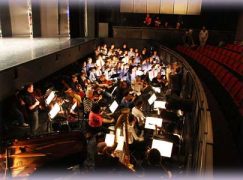
The Bavarian Radio Symphony Orchestra has just announced its 70th birthday season.
Several of the featured conductors make 70 seem young.
Music director Mariss Jansons is 75, Herbert Blomstedt is 90, Christoph von Dohnányi is 88 and Bernard Haitink, 89.
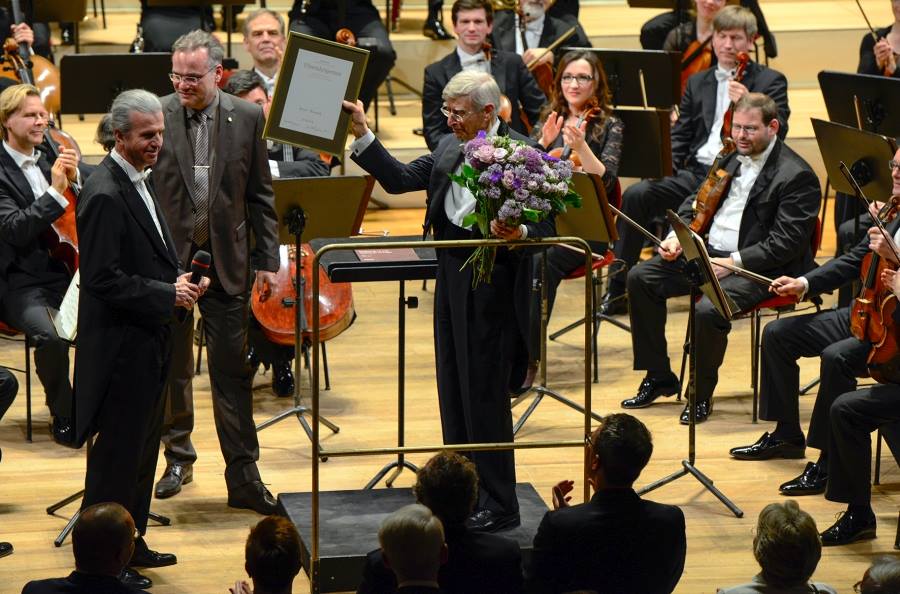
The new season, rolled out yesterday, includes Zemlinsky’s The Dwarf, Ambroise Thomas’s Hamlet’s and something very German by Glanert. Pretty Yende gets to do the Sonnambula walk inn her nightie.
Seven new productions is about average for a major opera house in 2019.
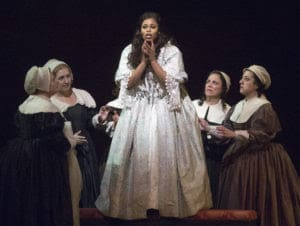
JoAnn Falletta will step down as music director of the Virginia Symphony Orchestra in 2020 after 29 years at the helm.
She remains in charge at the Buffalo Philharmonic.
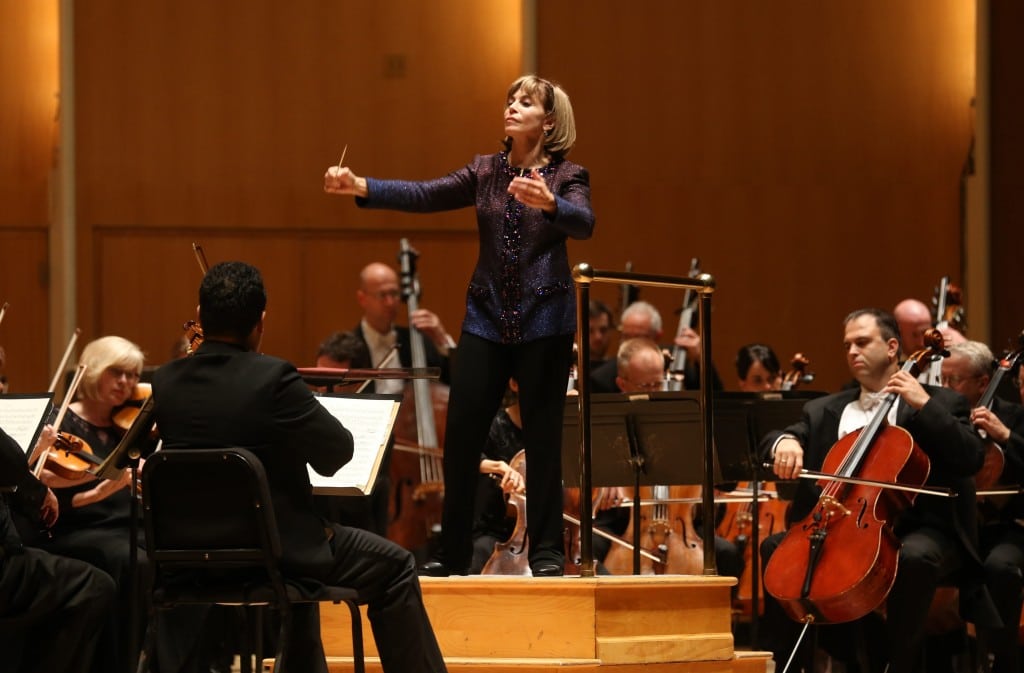
The Zurich Opera music director has joined the rush of musicians who are giving back their ECHO awards after the 2018 prize was given to a pair of rappers making Holocaust jokes. ‘They have mocked the suffering of millions of people,’ he says.
Here’s his letter:
Zürich, 18. April 2018
Im Jahr 2009 wurde ich gemeinsam mit der Staatskapelle Dresden für die Einspielung von Bruckners 9. Sinfonie mit dem ECHO Klassik ausgezeichnet. Das war eine große Ehre für das Orchester und für mich. Heute dagegen muss ich mich, wie andere Kolleginnen und Kollegen auch, in aller Deutlichkeit von diesem Preis distanzieren. Die Verleihung des Echos an die Rapper Kollegah und Farid Bang ist in meinen Augen völlig inakzeptabel. Die beiden Musiker haben nicht einfach eine Grenze überschritten oder im Rahmen der künstlerischen Freiheit provoziert, sondern sie haben die furchtbaren Erfahrungen von Millionen Menschen während des Nationalsozialismus verhöhnend in ihren Texten verarbeitet. Es ist erschütternd festzustellen, dass ein Kulturpreis keinerlei ethische Massstäbe kennt, Rassismus und ignorante Inhalte toleriert und sogar auszeichnet, wenn nur die Umsatzzahlen stimmen.
So gerne ich den Preis damals als eine Würdigung unserer Arbeit und als eine Auszeichnung für künstlerische Leistungen verstanden habe, so wenig möchte ich heute mit einem solchen Preis ausgezeichnet sein.
Fabio Luisi, Generalmusikdirektor des Opernhauses Zürich
